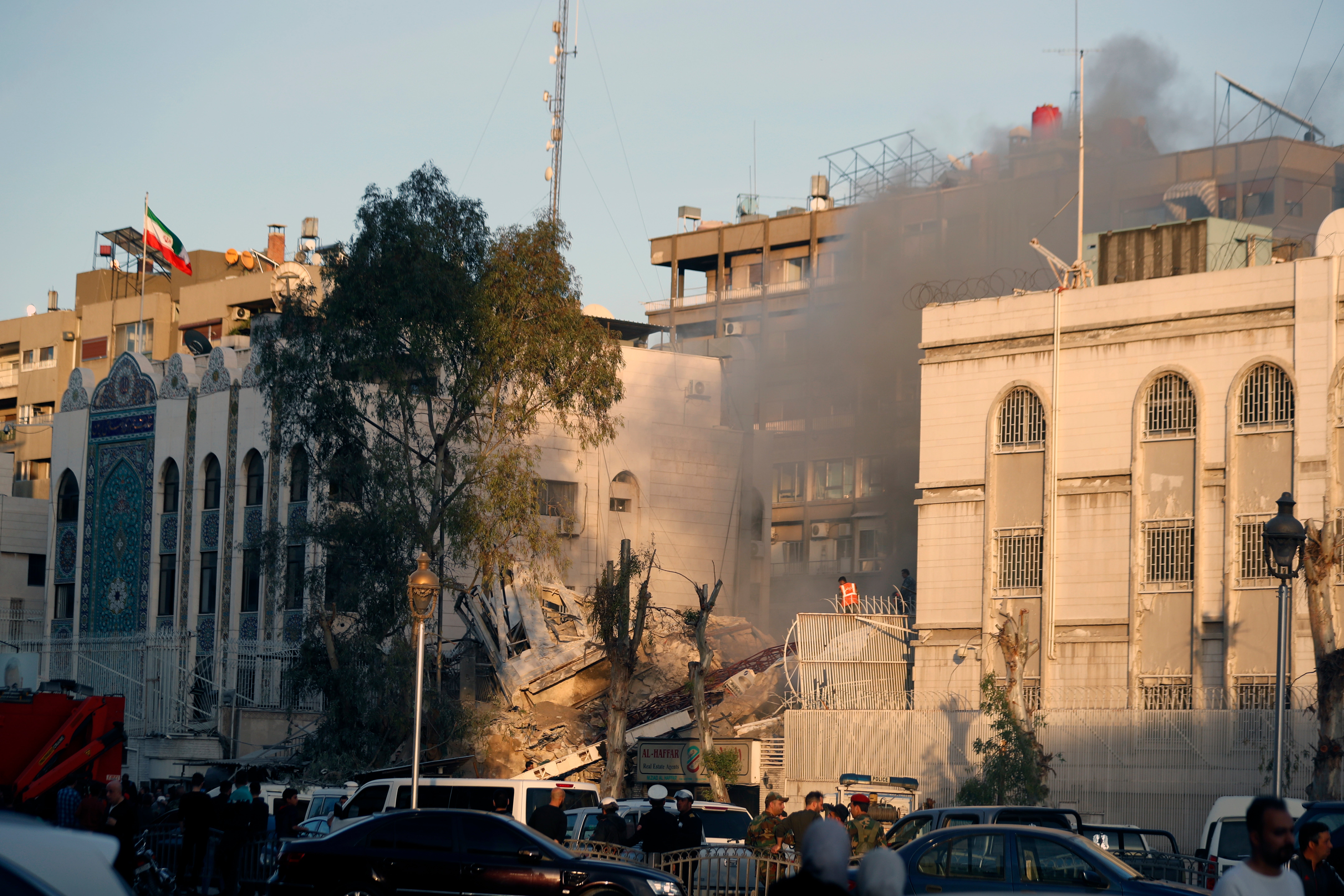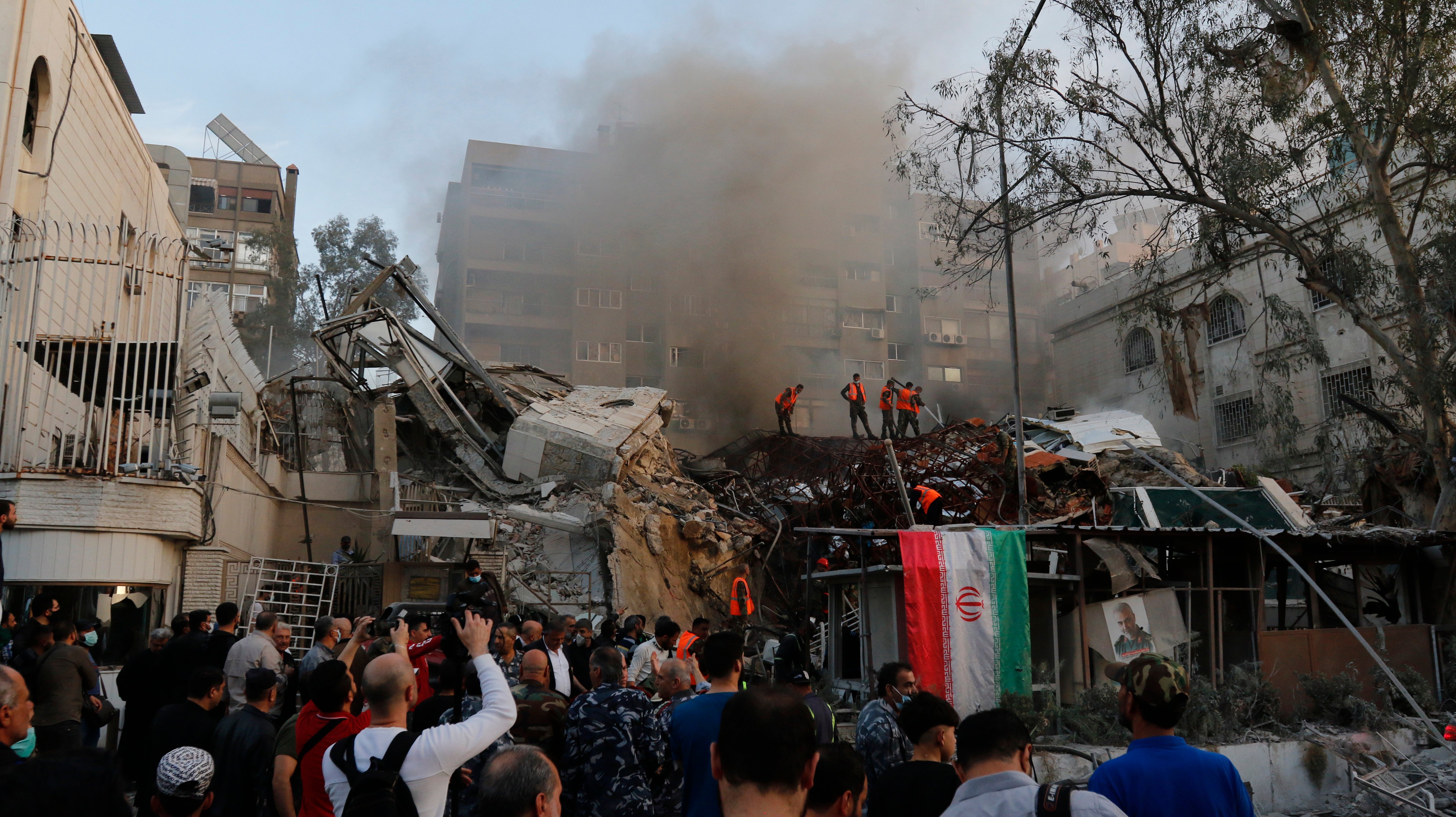Top Iranian commander killed in suspected Israeli strike on Syria, say officials
Mohammad Reza Zahedi, a commander in Iran’s Revolutionary Guards Corps (IRGC), was killed according to officials

Your support helps us to tell the story
From reproductive rights to climate change to Big Tech, The Independent is on the ground when the story is developing. Whether it's investigating the financials of Elon Musk's pro-Trump PAC or producing our latest documentary, 'The A Word', which shines a light on the American women fighting for reproductive rights, we know how important it is to parse out the facts from the messaging.
At such a critical moment in US history, we need reporters on the ground. Your donation allows us to keep sending journalists to speak to both sides of the story.
The Independent is trusted by Americans across the entire political spectrum. And unlike many other quality news outlets, we choose not to lock Americans out of our reporting and analysis with paywalls. We believe quality journalism should be available to everyone, paid for by those who can afford it.
Your support makes all the difference.A top Iranian commander has been killed in a suspected Israeli airstrike on the Iranian consulate in Syria, according to Lebanese security officials.
Mohammad Reza Zahedi, a commander in Iran’s Revolutionary Guards Corps (IRGC), was killed in the attack on the building in Damascus, according to Reuters news agency.
Mohammad Hadi Haji Rahimi, a deputy commander in the Quds Force, was also killed alongside five other officers, the IRGC said.
Israel, which has repeatedly hit Iranian targets during the six-month war in Gaza, declined to comment on the incident, first reported by Iranian state TV.
An Israeli military spokesperson said: “We do not comment on reports in the foreign media.”
The IRGC blamed Israel for the strike, as did Iran’s foreign ministry, which labelled it an “abhorrent” and “brutal” attack and vowed revenge.

Iran’s foreign minister Hossein Amirabdollahian called the strike “a breach of all international conventions”. A spokesperson for the ministry told Iranian state TV that Tehran would decide on the type of “response and punishment against the aggressor”.
Syria’s foreign minister Faisal Mekdad, who later attended the scene, said his country “strongly condemns this atrocious terrorist attack that targeted the Iranian consulate building in Damascus and killed a number of innocents”.
The United Arab Emirates (UAE) and Pakistan also condemned the attack, while Hamas - which is backed by Iran - said it condemned the strike “in the strongest terms”.
Guardsman Brigadier General Zahedi was a leading figure in its elite Quds Force - a unit specialising in military intelligence and unconventional warfare.
He was a mid-ranking commander during the Iran-Iraq war, having joined the IRGC two years after the revolution of 1979.

Having previously served as a commander in the Revolutionary Guard’s ground forces, he served as the head of the Quds Force in Syria and Lebanon until 2015.
Since the Iranian-backed Palestinian faction Hamas’ attack on Israel on 7 October, Israel has ramped up airstrikes in Syria against Lebanon’s Iranian-backed Hezbollah militia and Iran’s Guards, both of which support the government of President Bashar al-Assad.
The Quds Force’s aim is to export Iran’s 1979 Islamic revolution abroad. The US assassinated the former head of the Quds Force, Qassem Solemaini, in January 2020.
Experts say Yemen’s Houthis, along with Gaza’s Hamas and Lebanon’s Hezbollah, form part of Iran’s “axis of resistance” - a military alliance built over four decades to oppose Israeli and American power in the Middle East.
Lebanon’s Hezbollah, the most powerful group in the axis, has 100,000 fighters, has exchanged fire with Israeli forces since Hamas went to war with Israel and more than 70 of its fighters have been killed.
Join our commenting forum
Join thought-provoking conversations, follow other Independent readers and see their replies
Comments